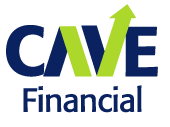Top tips to help you achieve financial freedom: Part Two
Mon April 8th 2024
Today’s financial wellness tips focus on two sides of the coin - being a smart saver and a better borrower.
It could be argued that they both serve the same purpose of providing usefully large sums of money. Whilst borrowing money can allow you to realise your dreams quicker than saving can, many see saving as a more secure and manageable way of accumulating funds.
Today’s installment offers advice on how to create an achievable, realistic savings plan, prioritising your goals and how to get the most out of your savings account. We also look at how to keep your borrowing under control, but also how borrowing can have its benefits in the long run.
It's inevitable that most of us will borrow at some time in our lives, whether it be via credit cards, student loans, or mortgages and, for some, borrowing money for something significant like a car or house purchase can seem like an easier, faster option than saving.
Although borrowing can actually help our financial position by building a stronger credit profile, many people see saving as a more stable and secure way of accumulating funds as they ultimately have more control over when, and how much they deposit into their chosen savings fund.
We've all heard the age-old proverb ''fail to prepare, prepare to fail'' and tackling your finances is no exception to this rule.
If you really want to stay focused and commit to your savings goal you must plan ahead – how much, how often, and how long will it take? Keeping on top of your financial obligations is also imperative and planning how you will repay debt could also help you benefit from lower interest rates and reducing the amount you owe sooner rather than later.
Why not check out Part One of our blog post for tips 1-14 on how to tackle the basics!
HOW TO BE A SMART SAVER AND A BETTER BORROWER!
15: Plan to save - and follow through
A budget should include a savings plan – otherwise there's not much point in doing one. Try to set aside at least 10-15% of your income in a savings account every month. It sounds like a lot, and you may need to cut down on expenses to do it, but having a cushion of savings is essential in the long run.
16: Give yourself a savings goal
If you have savings goals, you're more likely to follow through on your savings plan. Whether you want to save enough for an emergency fund for your household, a new car, or a deposit on a house, you need to have a good idea of how much you want to save and how long it will take.
17: Pick your priorities
Most people can't afford to set aside savings for a house, a holiday, and a car at the same time. So it's important to prioritise. Decide which savings goal matters most to you and your family, and work on that one first.
18: Always be prepared
An emergency fund is an essential part of your savings plan. Set aside savings and work towards having 3-6 months worth of expenses on hand. This lets you relax – if you lose your job, have a car accident, or just run into some unexpected expenses, you'll have your fund to fall back on.
19: Save for retirement now
Saving for retirement is important – it's easy to put off if you're decades away. But the sooner you start saving, the more comfortable you'll be. With Kiwisaver and other employer subsidised plans, if you don't opt in, you're missing out on free money from your employer and the government.
20: Save early, save plenty
Start saving as soon as you start earning. The earlier you start saving, and the more you're able to set aside, the better you'll be when it comes to buying a house or retiring.
21: Let's be realistic
Whether you're saving for a house or looking towards retirement, it's important to set realistic saving goals. Work out how much you'll need – for retirement, it's generally 70% of your current income per year – and figure out how you'll get there. If you're on a lower income, you may need to reset your expectations.
22: Look at the long term
Financial goals shouldn't just be about the short term. Ideally, your savings should be setting you up for your next stage of life - like buying a house or having a baby. And ultimately, you should be putting money towards your retirement.
23: Smart ways to save
Set an automatic transfer from your main bank account to your savings each month. That way, you won't even see the money before it's saved – meaning you won't be tempted to spend it
24: Small change can make a big difference
Saving doesn't have to mean putting aside a huge sum of money every month. If you can't afford to save much, it's still worth getting into the habit of saving regularly. And you'll be surprised by how much it adds up over time.
25: Separate your emergency savings
Once you have an emergency fund, set it aside in a high interest account, separate from your spending. You can even set it up so you can't make withdrawals without notice, so it's harder to dip into.
26: Be SMART
Financial goals are only worth having if they motivate you. Make your goals SMART (Specific, Measurable, Achievable, Realistic, Timely) and they'll do more for you.
27: Bank smarter
If you're a consistent saver with money in the bank, you can probably get some benefits from your bank. Most banks offer fee-free accounts if you have a certain amount of money saved, and will give you extra services free if you have more than one account. You can also benefit from credit card reward schemes and higher interest rates if you choose certain types of account.
28: Take advantage of financial aid
Make sure you're not missing out on financial assistance if you qualify. For students, that means student loans, allowance, and scholarships. When you're a bit older, you might qualify for tax rebates, childcare subsidies, or first home help through Kiwisaver. Make sure you know what you're entitled to, how much you'll receive, and whether you'll need to pay it back.
29: Loans are a last resort
Whether we're talking about student loans, car loans, or credit cards, loans should be a last resort. If you do need to take on a loan, choose one with a low interest rate and reasonable terms – and make sure you have a plan for paying it back as soon as possible.
30: Repay your credit cards monthly
It's fine to use a credit card – in fact, some cards offer worthwhile rewards and bonuses. But it's essential to pay off your card on time every month. Otherwise you'll be charged interest and penalties on your month of spending.
31: Keep debt under control
Ideally, you'll have no debt. But realistically, most people have some. There are ways to manage your debt and reduce it over time –including transferring credit card debt into a lower interest loan, consolidating loans, and paying off the highest interest debt first.
32: Use credit wisely
Credit cards can be useful - as long as you're smart. Make sure you check the terms and conditions on your card before you start and don't accept offers to increase your limit if you can't afford to pay that amount off each month.
33: Keep an eye on your credit score
Your credit score affects your entire financial life – it can mean the difference between getting a mortgage and being turned down. If you're concerned about your score, you need to talk to NZ credit reporters to obtain a record.
34: Choose the right credit card
Credit cards are not all created equal. Before you sign up for a credit card, check out the interest rate and terms – choose a card with low interest and a longer grace period.
Head over to our Tools & Resources where you can find our handy savings, mortgage, and retirement planning calculators.

Need our help?
We're here to answer your questions.
service@cavefinancial.co.nz
09 302 7310
1D Roberta Avenue
Glendowie
Auckland 1071
New Zealand


